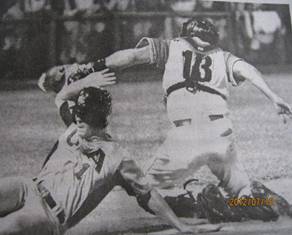
It’s no secret to anyone that Cuban baseball, regardless of the odd triumph, has been in crisis for some time. Exposing the story of the majors, showing that professionals are playing against amateurs, the successive defeats against teams playing in equal conditions, have got the specialists and managers on the run, looking for magic formulas to resolve the situation. At some point there is the impression that, in the end, they will have to set aside the syndrome of champions at all cost, more political-ideological than sporting, and bet on the massive practice from the base, facilitating the emergence and practice of new talents, which would fill out the teams of the national series as well as the Cuban team in international competitions.
The games against the team from Nicaragua and the college students from the US demonstrate that nothing has changed. We went to Nicaragua to win and not to give a chance to our new players to get started; in contrast, this was, intelligently, what the Nicaraguan mentor wanted and did in every game with his inexperienced players.
The Cuban mentor chose to go for the victory with the best players from the national series that recently ended, without taking into consideration their physical exhaustion after the intense national series, and left the beginners on the bench as if they had traveled as spectators.
They used the same formula with the US team, after having lost the first and last games and having suffered throughout the second and third games to the last Out. Defeating the Americans (3 vs. 2) turned out to be again a political-ideological problem, having nothing to do with baseball.
Some questions emerge from this last game (Cuba vs. US), which was settled as a mutual training, not as a championship. If the visiting team was formed by college students from different universities (between the ages of 17 and 21), why wasn’t the Cuban team formed by college students from several universities as well? Why was the Professional Team of Cuba brought to this game? Isn’t this happening because baseball teams do not exist in our universities, and the sport is not practiced in an organized way?
Until we restore the practice of sports (not only for baseball) from the bottom up, with organized teams in schools and in the workplace, as it used to be before 1959, where the talented athletes emerge and naturally climb up the ladder, from lower to higher levels receiving the attention and training from specialists, our trumpeted massive character will continue to be a myth, and our teams, genetically manufactured in schools for sports or in high performance centers, ill with champions syndrome, will continue to be more distant every day from the award podiums.
Translated by Chabeli
July 11 2012
